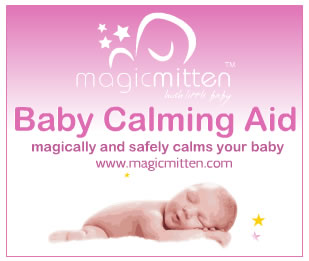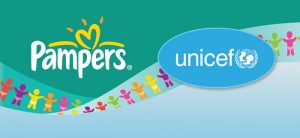





-

Vitamins for Kids?
Baby Preparation
Is Your Child's Identity Safe?
Crazy Cravings
Local Pharmacist Mukaram Sheikh explains what sort of vitamins we should be giving our children, and what constitutes a ‘healthy balanced diet’.
Many scientists and healthcare professionals agree about two things; that with the exception of vitamins K and D, a healthy balanced diet should provide all the nutrients young children need and that the early years are vital in laying the foundations for good eating habits and future health. But what is a ‘healthy balanced diet’? Basically it is one that provides all of the nutrients your child requires.
Out of all the vitamins, only 10% of one’s vitamin D intake is available from the diet. This is normally from foods/milk, which is artificially fortified. The government advisory body, the Committee on Medical Aspects of Food and Nutritional Policy have made a series of recommendations concerning vitamin D and supplementation:
- All pregnant and breast-feeding mothers should take a vitamin D supplement.
- All infants should receive vitamin supplements unless they are having more
than 500ml of vitamin D fortified formula daily.
- Breastfed babies do not need supplements until the age of six months if their
mother maintains good vitamin status during pregnancy.
- Children over one year should have vitamin supplementation unless their diet
is diverse and plentiful and they have exposure to sunlight.
- Children at risk of deficiency – those living in the north of the UK, those from
Asian families, poor eaters, those on restricted or exclusion diets or born with
poor vitamin D stores should take supplements until the age of five years.
The UK health department’s advice goes a little further and recommends that all children aged from six months to five years should be given supplementary vitamins A, C and D.
The vast majority (approximately 90%) comes from the exposure of the skin to sunlight that is needed to convert vitamin D to its active form. To produce sufficient vitamin D, people with fair skin need 20 to 30 minutes of mid summer sun on their face and forearms two to three times weekly.
It is important to note that those vitamins that are fat soluble (Vitamins A, D, E and K) can be very harmful if given in large quantities but if given according to manufacturers guidance will benefit most children.
There are many vitamin/mineral supplements available on the market for infants and children, for expert advice always ask your local pharmacist. Out of all the health care professionals they are the most easily accessible and have a wealth of knowledge about these supplements.

In the UK, those families on state benefits can get free vitamin supplementation (drops for children and tablets for women) through the healthy start scheme, however a recent survey suggested that only 2% of eligible families have claimed these free supplements.
Bringing a new baby home and adjusting to your old life is never going to be easy, but perhaps the most important issue to keep on top of is organisation. Planning in advance could save you a lot of time and stress, so we’ve got some handy tips to help you get back into the swing of things and stop you being overwhelmed by your newest family member!
TIDY TOYS
When you bring your bundle of joy home, you will find you have suddenly been invaded by baby paraphernalia. Big toys, little toys, bottles, dummies, nappies, blankets and the rest of the list will take over your house, your car and your life, so it’s really important to tidy up! Before the baby comes (or as soon as possible if we’re too late!) invest in some boxes, crates or baskets that you can store everything in, and put up extra shelves in the nursery or in baby’s wardrobe to accommodate extra supplies.
BABY-FREE ZONE
It makes sense to spend some time on your own early on so you can get accustomed to the fact that your baby will not break into a million pieces without you. You’re allowed to have some time to yourself (you deserve it!) so ask hubby to take over for a while, or call the faithful grandparents into action – make sure whoever looks after baby you can trust completely to begin with. Consider having a baby-free room with some of your favourite books and trinkets to remind you that your old life is still there underneath all the nappies and blankets.
HEALTHY MENU
You’re going to be extremely tired when you bring baby home for the first time, and cooking a nice healthy dinner is going to be the last thing on your mind. However, maintaining a healthy diet is an essential part of recovering from pregnancy and childbirth so you should make sure you give yourself and your family the nutrition you need. Cook up big batches of easy meals that can be frozen into portion sizes, and when you run out of those you could always get friends or parents to cook something nice for you!
CROWD CONTROL
Nothing draws unwanted visitors from the woodwork like a new baby. Friends and relatives you didn’t even know you had will suddenly start knocking on the door, desperate to spend some time with your newest family member. This is all wonderful until you realise you’ve got huge bags under your eyes, you haven’t showered for a week and you’re covered in baby sick. We highly recommend you make your own “Mummy and Baby are Napping” sign to hang on the wall and recruit your husband to defend your front door. If you have to let certain people in (like grandparents) send them away to find some supplies, ask them to help you tidy up or get them cooking dinner while you take some time off playing hostess.
FAMILY FINANCES
Can’t resist splurging on lots of cute baby bits and bobs? Stop before you shop and think about the cost of your little darling – thousands of nappies, strollers, small clothes, big clothes, bigger clothes, furniture, maybe even a new car and a bigger house… And if you’re planning on having another baby, you should definitely think about sitting down and going through your finances. Drawing up a baby budget will help you to treat your little one to the best, without feeling guilty about spending your hard-earned cash.
It is a shocking fact that every day more than 1.5 million people world- wide fall victim to cyber crime, but more alarming is the fact that we are experiencing a phenomenal growth in child identity theft.
In America, the Federal Trade Commission labels child identity theft as the fastest growing type of ID theft. In the UK, personal data is protected by the Data Protection Act 1998, but deception offences under the Theft Act 1968 are increasingly contending with identity theft situations.
For many parents the concept of stealing a child’s identity is surreal. The sad truth is stealing an identity – especially one of a child that is clean and remains unmonitored for years – is all too easy.
In many instances these crimes go unreported because parents have no suspicion that their child’s identity has been taken, and the child certainly has no knowledge it has happened.
What is particularly insidious about the crime is that it can go on for years without the victim or the victim’s parents having any indication that anything untoward has happened, although there can be warning signs — if your ten year old starts getting credit applications from retail stores, for example.
More likely the first time most parents learn their son or daughter’s identity has been stolen is when, as an adult, they attempt to set up an online account, or experience their first background check or credit report.
The main culprit is Facebook with many children joining the site before and after the ‘legal’ age of 13 without their parent’s knowledge, and then unwittingly revealing information about themselves on the social networking site.
Former conman Frank Abagnale portrayed by Leonardo DiCaprio in Steven Spielberg’s film Catch Me If You Can, recently said that children need to be made aware of the serious risks involved.
“If you tell me your date of birth and where you’re born [on Facebook] I’m 98% on the way to stealing your identity”, he explained. “Never state your date of birth and where you were born, otherwise you are saying ‘come and steal my identity’.”
And it’s not just your child you should look out for – good practice begins with educators. 57% of people questioned admitted to using data easily available on their social networking sites as passwords for online and telephone accounts. Source: ProtectMyID survey by Experian
For more information on identity theft please visit the UK’s Fraud Prevention Service website http://www.cifas.org.uk
This article was written by Sally-Anne Rogers, Director of Public Relations at The Manchester Grammar School. She also runs a private consultancy practice; for more information visit sallyannerogers.com
Ice cream and pickles? Chillies dipped in chocolate? Peanut butter straight out of the jar?
Yep, you’ve guessed it! The infamous pregnancy craving has finally struck, and over half of mums-to-be find themselves desiring the strangest of foods. But although yearning for a very particular type of food seems to be an unavoidable part of carrying a baby, nobody really knows why cravings actually happen…
“Why do I get cravings!?”
Perhaps cravings are simply your body needing more calories because you have to work 24 hours a day to grow a little person inside you, or could it be that we need to feed an emotional hunger and really need a hug over a hamburger? Some say that it is a change in hormones that throws mums-to-be into a feeding frenzy. Others believe it is a lack of nutrients that causes us to want certain foods.
“What do I want that for?”
Some explanations say that if you crave a lot of ice during your pregnancy it could mean you have an iron deficiency, or a shortage of B-vitamins might lead you to want more chocolate, or the need for red meat could possibly be triggered by a lack of protein. There are so many possible reasons why you crave certain things, but there isn’t a lot of scientific evidence to support it. It could just be your body looking for that extra 300 calories a day that you need while you’re supporting your growing baby.
“Do we all crave the same things?”
Although many ladies crave the weirdest combinations of foods, there are some
usual suspects that make an appearance. A popular craving tends to be sweet,
sugary foods with spicy and salty foods also a favourite, and sometimes women find that they just crave the smell of the food rather than the taste of it. Many women find themselves desiring food they don’t
like (a lot of veggies want meat!) during their pregnancy, and often go off it
again the minute they give birth.
“When will they start?”
Cravings usually begin in the early stages of pregnancy, and some mums even know they’re pregnant a second time because they start wanting the same food! However, these desires often change throughout the nine months – one minute you’re craving chips dipped in custard, and the next you want bacon and sausage sandwiches.
“Shall I give in?”
The general belief is that as long as your cravings aren’t harmful to you and are eaten in moderation, you’re absolutely fine to indulge yourself (just don’t expect hubby to join in the delights of fish fingers and mustard!). Things like skipping breakfast can make your cravings worse, so try to make sure you eat in the morning every day and give yourself a wide range of food to ensure a healthy diet. Exercise can also be good to curb your cravings, so take a trip to the gym or get the Wii out and take your mind off food.

You can even crave non-foods while pregnant, a condition known as ‘pica’. Some women have reported the urge to eat cement during their pregnancies…






